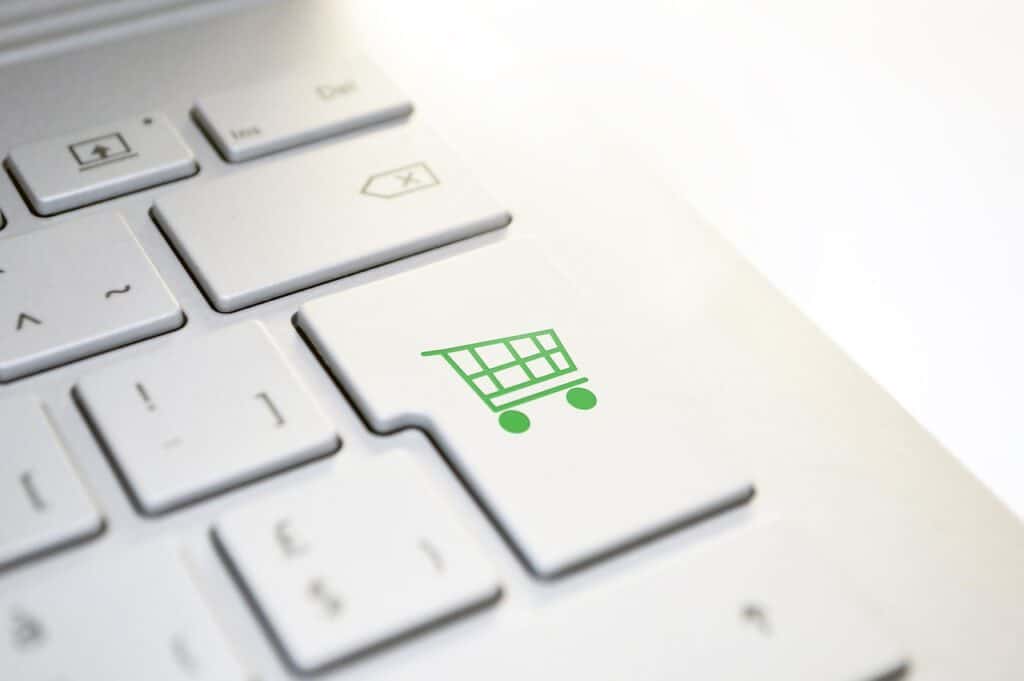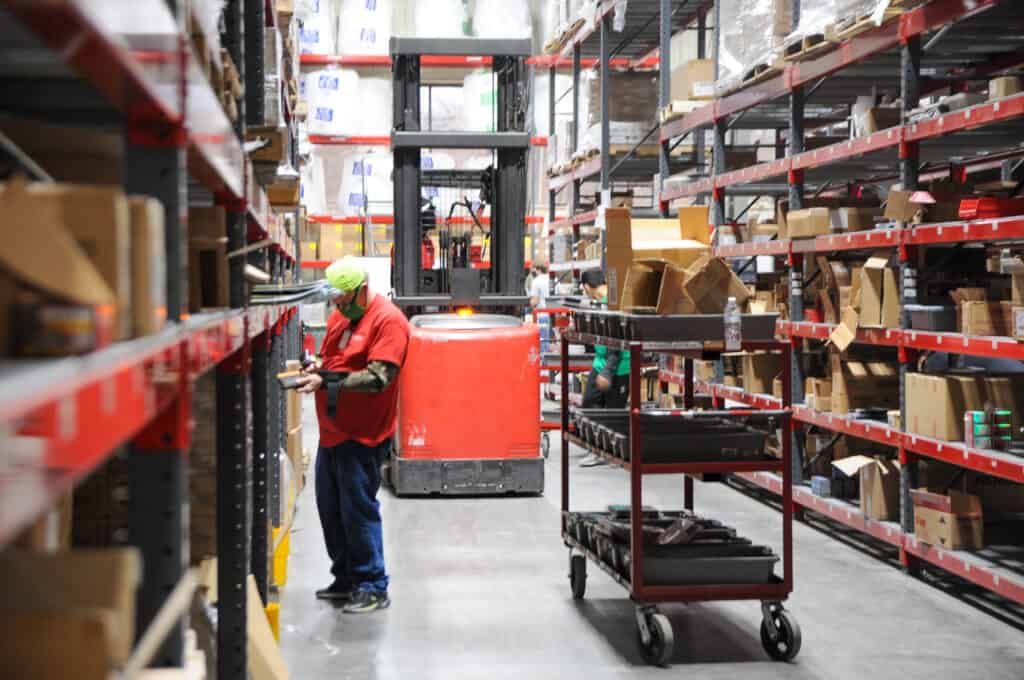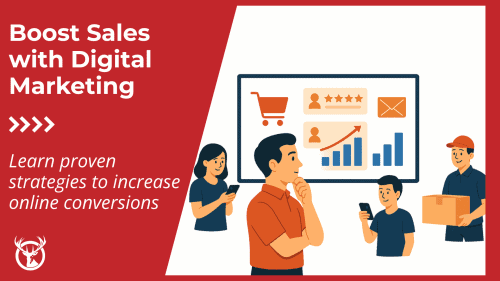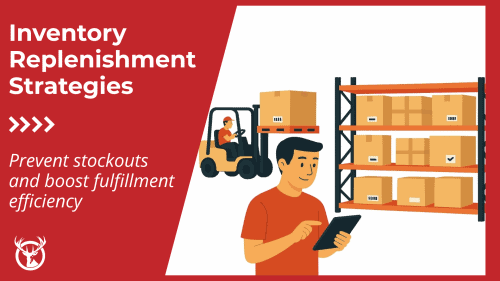It sometimes feels like eCommerce businesses must sell on Amazon. After all, it’s the biggest marketplace globally, and more than a third of product searches start there. But selling through Amazon has a dark side as well. For example, shoe retailer Birkenstock cut all ties with Amazon because of counterfeiting, which is a persistent problem on the site.
Amazon Marketplace can deliver extraordinary rewards to sellers and also crush their hopes and dreams. If you’re just starting your business or thinking of selling through Amazon for the first time, it’s crucial to weigh the pros and cons to figure out if the risk is worth the reward.

Nothing in this article is meant to imply a legal relationship between Red Stag Fulfillment, LLC and and any company mentioned. Red Stag Fulfillment, LLC does not own any other company’s trademarks referenced or included in this article. Information gathered for this article came from a mix of publicly available news and websites, websites of the companies mentioned, and direct communication with named companies.
Should you sell on Amazon?
The easy answer to whether eCommerce companies should sell on Amazon is yes. Creating product listings is much easier than setting up your own website, and selling through Amazon can be an excellent addition to an omnichannel eCommerce strategy. Plus, the site allows you to reach customers who might not otherwise find your products.
However, when you start on Amazon, you’ll still be a small fish in a big ocean. The site has 12 million product listings, so you’ll have to work to be seen. (Imagine being in a store with 12 million products!) And, if you do find success on Amazon, you could become the target of bad actors. Sellers have had their products copied and their stores hijacked. Plus, as one among thousands of sellers, you might not get much help from Amazon if you run into trouble.
So, the answer to the question of should you sell on Amazon is really: yes, but not exclusively on Amazon. The risks are too significant to depend on this single marketplace as your only sales channel.

What beginners should know before selling on Amazon
The first decision you’ll need to make before selling on Amazon is which seller plan is right for you. If you expect to sell fewer than 40 units a month, you can choose the individual plan. That plan has no monthly fee, but you’ll pay $0.99 for each item you sell. You’ll also pay the fees that Amazon takes from each sale (the percentage of fees varies by product category). The individual plan allows you to create new product pages, but that’s about it. And you can’t set your shipping rates — Amazon will tell you what you can charge for shipping.
If you just want to test marketplace selling as you get your business going, the individual plan could be an excellent place to start. However, if you plan to make significant income selling on Amazon, you’ll probably want to opt for the pro plan.
Amazon’s pro plan is $39.99 a month, plus the commission on each sale. It comes with better product placement opportunities and reporting capabilities.
Another option that will boost your placement: seller-fulfilled Prime (SFP). With SFP, you’ll fulfill your own orders, but be able to offer Amazon customers Prime shipping. You’ll earn a coveted Prime badge on your listing, which can dramatically boost sales. It’s important to consider seller fulfilled Prime requirements if you’re exploring this option.
Whichever plan you choose, you’ll need to incorporate Amazon fees into your pricing. Amazon offers a fee calculator to help you understand the cost of selling on the platform. If you use Fulfillment by Amazon for your eCommerce fulfillment, make sure you include all applicable FBA fees in your cost calculations.
As you set up your Amazon account and start selling on Amazon, you’ll undoubtedly have questions. The answers are at Seller Central. Seller Central offers information, resources, and also Amazon seller forums. The forums are where sellers ask and answer questions and complain about problems they’re having with Amazon. The forums are a terrific way to get help as a newcomer and see what issues you might encounter as an Amazon seller.
The pros of selling through Amazon
Selling on Amazon has many benefits. Here are just a few.
Extend your reach with a built-in audience
Amazon Prime has 150 million members and 300 million users. Over 90% of people who shop online in the U.S. have bought something on Amazon at some point in time. By selling through Amazon, you have access to that huge audience, some of whom are probably searching for precisely what you sell.

You benefit from the trust consumers have in Amazon
As one of the earliest eCommerce companies, Amazon figured out that people need trust to pay money for a product they can’t touch and wait for it to arrive in the mail. Amazon has worked hard to build consumer trust with excellent return policies, product reviews, and seller ratings that give consumers the confidence to buy.
Amazon puts consumers first and develops strategies that drive the eCommerce industry. For example, it pioneered fast delivery and continues to shorten the window for order fulfillment.
Selling through Amazon is plug-and-play eCommerce
You don’t have to have any technical skills to create a product listing on Amazon. If you can type and upload photos, you can complete the task. You can get set up to sell a range of products in just a few hours.
Of course, it helps to have good photos and a detailed and appealing product description. And marketing your items to increase sales on Amazon can be a challenge. Still, you don’t have to worry about managing a site, juggling sales plugins, choosing a shopping cart, or setting up online payments. Amazon has done all of that for you, so you can focus on building your eCommerce business.
With FBA, you can get all your eCommerce services in one place
Another benefit of selling on Amazon is that you can use FBA as your 3PL services company. FBA lets you offer Amazon Prime shipping, and you pay a single bill for marketplace fees and fulfillment. Plus, you get access to Amazon’s logistics operations, with one of the most extensive networks of fulfillment centers in the country.

The cons of relying on Amazon for eCommerce sales
Selling on Amazon is not all perks and benefits. Sellers have encountered issues with almost every aspect of Amazon’s offerings. It’s essential to understand the potential pitfalls of Amazon before you start with the platform.
You’re at the mercy of Amazon
When you sell on Amazon, you don’t set the rules — Amazon does. And Amazon can change the rules, sometimes with short notice. The company sets policies that benefit Amazon. If Amazon’s regulations harm your business, you’re just collateral damage.
Amazon’s relentless focus on retaining customers and keeping consumers happy can sometimes hurt sellers. Sellers have had their accounts closed by Amazon due to fraudulent negative reviews. And some have earned bad reviews because FBA shipped another seller’s inferior product to fill their orders.
The process to shut down an account is swift, but proving to Amazon that you’re innocent can take months or years. Some eCommerce companies found themselves stranded with no income and hundreds of thousands of dollars in inventory they couldn’t sell when their Amazon account was closed.

Amazon sellers must out-compete Amazon
Selling on Amazon means competing with many other marketplace sellers to win the Buy Box. But you’re also competing with Amazon. Amazon sells its own products, and it processes everyone else’s products. The company can analyze that sales data and use it for product development. When Amazon creates its own version of a product you sell, the Amazon item is almost certain to beat yours in the site’s recommendation engine.
You could have your business stolen by scammers
Another threat is scams from bad actors on the site. One scam involves someone placing a large order at the beginning of a busy sales season to clean out your inventory, then returning it all after the competitor has gotten all the sales while you were out of stock. People have had their product listings hijacked, with other sellers taking their sales or even taking control of the listings. A recent investigation found that some of these scams were aided by Amazon employees, who sold data on sellers due to the company’s lax security.

FBA limits warehouse space at peak times
Sellers that use FBA fulfillment centers have a whole separate set of problems. Due to a shortage of warehouse space, Amazon limits the amount of merchandise that sellers can stock during the holidays. That reduces your sales potential at the busiest time of the year.
And FBA can limit your stock at other times as well. Amazon wants to pick and pack mostly small items with high sales volume and high turnover. If your products aren’t moving quickly enough, FBA could tell you to remove them from its warehouses, often with a short time window to find another 3PL. That can throw your business into chaos.

Red Stag Fulfillment is the better FBA alternative
Fortunately, you don’t have to use FBA for your eCommerce fulfillment, even if you sell on Amazon. Red Stag Fulfillment is the FBA alternative and one of the best 3PLs for Amazon sellers. We can ship all your Amazon orders or act as a supplement to FBA, so you don’t lose sales due to warehouse restrictions. We can provide your customers with a truly omnichannel fulfillment experience.
At Red Stag Fulfillment, you’re a person, not a number. You’ll be assigned a customer service rep who will get to know your business and help you resolve any issues that come up. We see it as our job to help your eCommerce company grow and scale because we know that when our clients do well, our business does well. Give us a call, and we’ll explain how it works.
More about selling through Amazon:










